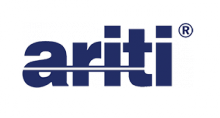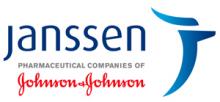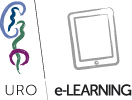mEducator
Exchange/ Repurposing of Multiple Resources in Medical Education
 mEducator is a Partnership Research Program that was completed in May 2012 with the collaboration of some of the largest European Academic Institutes/ Medical Schools, such as the University of London, Nice and Helsinki. Also other Academic and Educational Organizations have been involved as Associate Partners, among which is ISUD (Institute for the Study of Urological Studies).
mEducator is a Partnership Research Program that was completed in May 2012 with the collaboration of some of the largest European Academic Institutes/ Medical Schools, such as the University of London, Nice and Helsinki. Also other Academic and Educational Organizations have been involved as Associate Partners, among which is ISUD (Institute for the Study of Urological Studies).
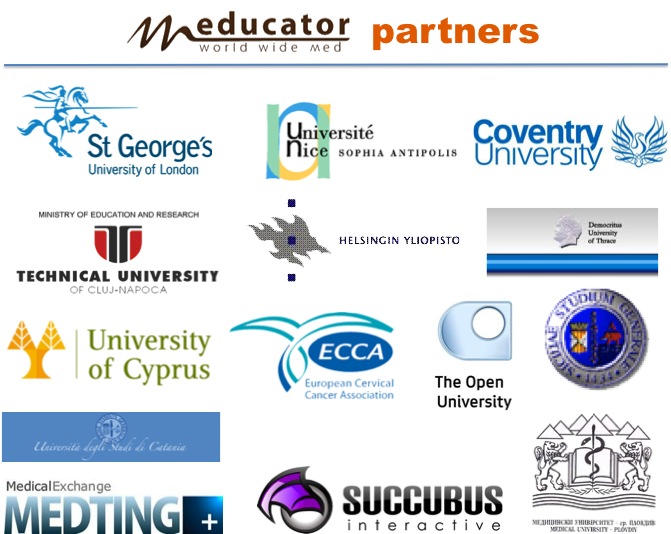
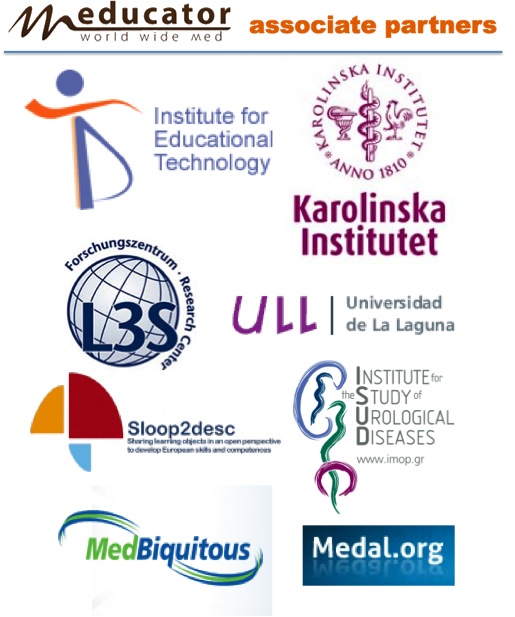
This project concerns the management of electronic educational resources in the Sector of Medical Education. Although there has been an abundance of such material in Academic Institutes all over Europe, it was not available in such a form that it could be widely used. The aim of mEducator is to implement and evaluate standard models in the field of e-learning, so as to enable all interested academic parties to retrieve, share and reuse medical educational material.
The program has brought together Medical Faculties, Teaching Experts, Learning Technologists, Companies, Internet and “serious games” Experts with the aim of developing and assessing different integrated approaches for exchanging, retrieving and repurposing educational content in Medicine.
mEducator 2.0
The first technological platform developed, mEducator 2.0, is based on mashup technologies –i.e. social networking or Web 2.0, as called in the technocrats’ language.
It is linked with web applications facilitating the collaboration among users, their active participation in the development of web content and provision of services, interconnection and interaction among sites with the use of mashup technologies and enrichment of terminologies/ glossaries including terms arising from the ideas and participation of a specific category of users (e.g. Urologists) through folksonomies. This platform allows users to use their own e-educational platforms/ Learning Management Systems (LMS) or Educational Repositories. Furthermore, thanks to the mashup technology, users are able to interact with mEducator 2.0 and other Repositories that are connected to it; in this way, they can easily track any educational resource they need while at the same time they can dispose and advertise their own material/content -provided this is properly licensed (e.g. with Creative Commons copyright licence).
mEducator 3.0
Τhe second technological platform, mEducator 3.0, is based on the Semantic Web or else called Web 3.0. It allows for access to interconnected e-learning Repositories and to other Web/Cloud resources. It uses Web Service and Linked Data Technologies in order to cover a wide span of educational resources.
In order to overcome tracking problems usually existing with common search engines, both approaches require from the user to give description of the educational material in search, by using specific metadata fields based on a scheme and rationale that are soon to be approved as a new e-learning standard in Medical Education. Also, both technological platforms place emphasis on the interconnection of creators/users, as well on the interconnection of the medical educational resources themselves, and encourage the creation of content exchange networks.
This last point mentioned is of particularly high significance, for today Medical Schools and Health Professional Associations are continuously on the need to invest more and more on specialized knowledge for enhancing their educational material. Besides, more and more Academic Institutes are using multiple web learning tools in teaching. Having access to Learning Objects/Resources and Metadata Repositories is highly crucial for the future of e-learning. The educational material available through the mEducator platforms covers both traditional and contemporary teaching methodologies (e.g. problem-based learning) and may have various formats (from books, documents, articles, papers to medical algorithms, ‘serious’ games, virtual patient cases and electronic anatomy).
Interconnection and exchange of resources in Medical Education will significantly change the process of preparing and creating learning/teaching material. There is no doubt it will contribute to the enhancement and expansion of the already existing teaching/ learning/ training process (particularly with regard to “continuing/lifelong education”), elimination of insufficient practices, reduction of costs, more effective physicians’ training, upgrading of health services and ultimately improvement of patients’ quality of life in the European Community.
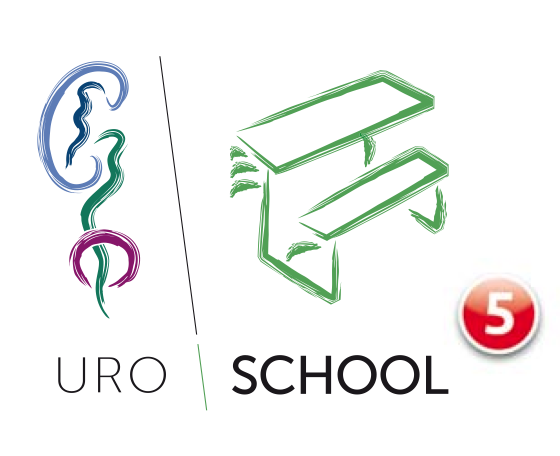
The mEducator Project was completed in April 2012 and funded by the eContentplus Program of the European Commission, with the aim of making digital content in Europe more accessible, friendly and easy-to-use. Its first educational application in Greece took place within the context of the 5th Interactive School of Urology in April 2012, with the presentation of Virtual Patients, e-exams and e-assessment.

